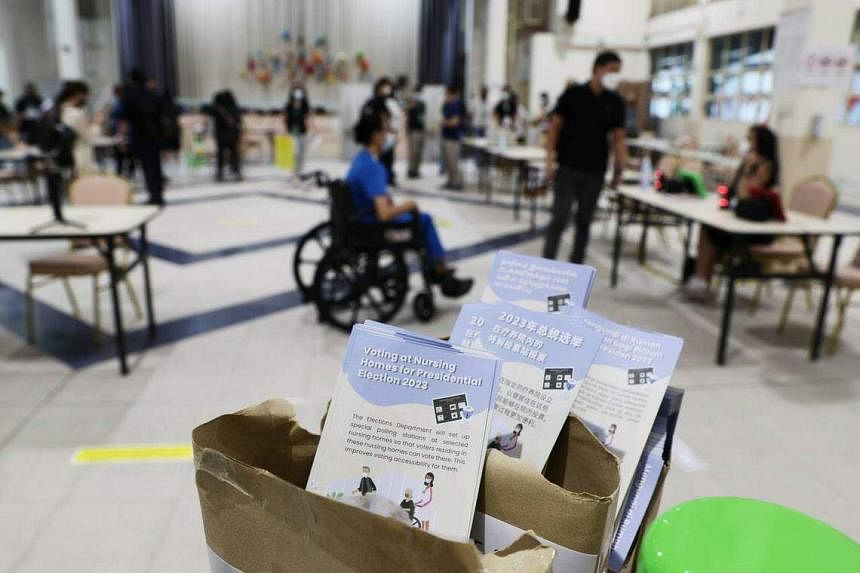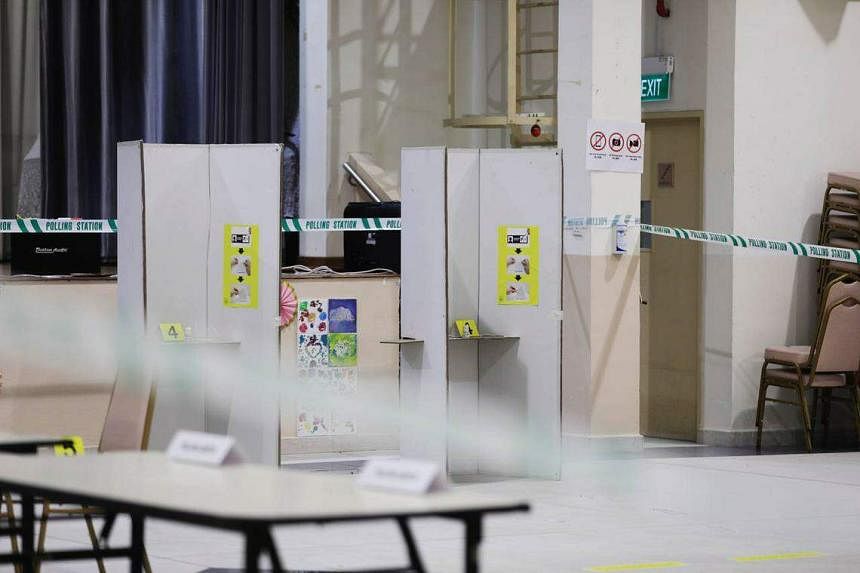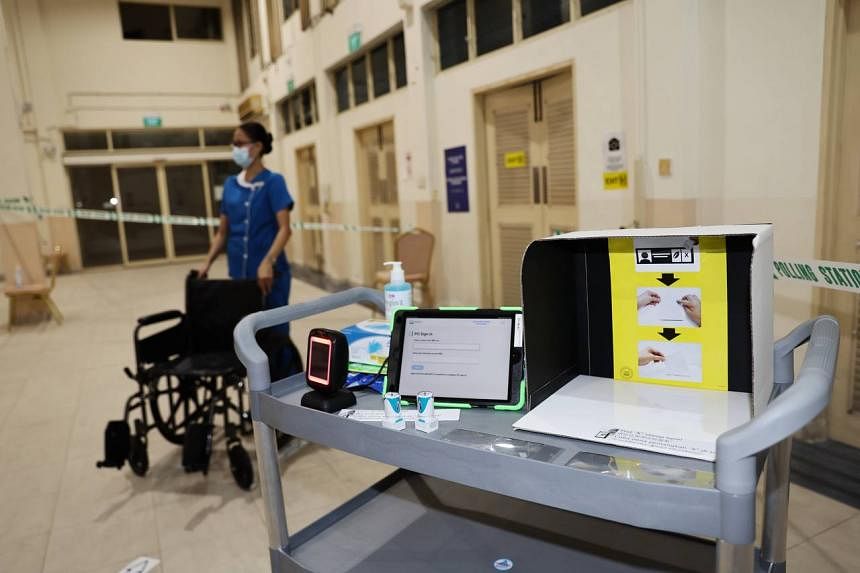SINGAPORE – For the first time in an election in Singapore, some bedridden residents in selected nursing homes were able to cast their votes under a mobile polling station trial that brings voting to the bedside.
It was part of a trial that involved the setting up of polling stations at 31 nursing homes here, one of the key features of Presidential Election 2023, which was held to elect Singapore’s ninth president.
“Some bedridden residents said they are happy to have an opportunity (to vote),” said Society for the Aged Sick (SAS) chief operating officer Kate Koh.
SAS, which has 360 residents, was one of the nursing homes involved in the pilot. There were 83 nursing homes in Singapore as at 2022, the Ministry of Health said on its website.
In the past, nursing home residents – many of whom have difficulty walking – had to be pushed out of the homes in wheelchairs to queue at polling stations, which are typically set up in schools or community centres. Some bedridden residents could not vote as they were not keen to travel out in a recliner wheelchair.
It is not known how many SAS residents were eligible to vote on Friday. But The Straits Times understands that about one-third of the eligible voters at SAS are bedbound.
Each of the nursing homes selected for the pilot has more than 50 voters. The Elections Department (ELD) previously said this trial would benefit 4,087 voters.
Madam Lee Dan Lin, 75, who has lived in SAS for about five years and uses a wheelchair, was one of the first residents to cast her vote at the home’s multi-purpose hall on Friday.
Speaking to the media after casting her vote, a beaming Madam Lee said voting on-site is much more convenient than going to polling stations.
The process took only five minutes, compared with the hours it previously took her to travel to and queue at polling stations.
She said: “It was very troublesome… In the home, an ambulance (took) us there, and then (we had) to wait under the hot sun. Compared with now, (there is) so much difference.”
At the selected nursing homes, the voting process is similar to that at other polling stations. Each eligible resident first presents his NRIC and poll card for registration. He then receives a ballot paper, marks his ballot and drops it into a ballot box.
Eligible residents who are not mobile can vote from their beds, with the help of election officials who verify their identities and assist them in voting using portable lap booths.

To communicate with the residents, the ELD prepared audio recordings in the four official languages and five Chinese dialects – Cantonese, Hokkien, Teochew, Hakka and Hainanese.
Residents who are unable to identify themselves or are unresponsive to the mobile polling team will not be issued a ballot paper to cast their vote.
Ms Koh said the home activated 12 staff, more than in previous elections, for coordination with different teams of election officials. But it was worth the trouble.
“Waiting with members of the public can be tedious for nursing home residents, especially when they are in a wheelchair. It can get very uncomfortable and hot,” she added.

Nursing home staff are not allowed to mark the ballot paper on behalf of a voter or engage in any actions that may influence the voter. They also have to move away before the resident marks the ballot paper, an ELD spokesman told ST.
Madam Chua Hwee Keng, 70, who has lived in SAS for eight years, was happy with the smooth process and assistance given by election officials.
She had kept abreast of election developments and was eager to cast her vote.
Madam Chua said in Mandarin: “Voting is important. It is fulfilling the responsibility of a citizen. It is rare to have a chance to vote, and not everyone has such a chance.”

